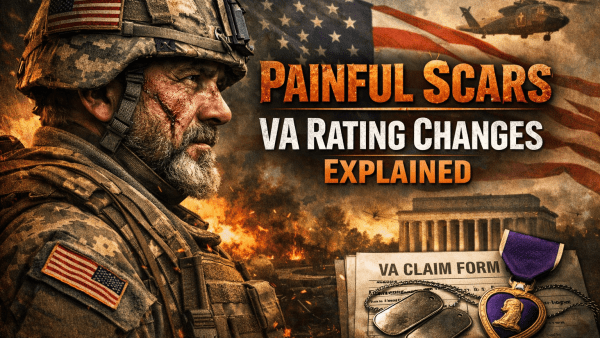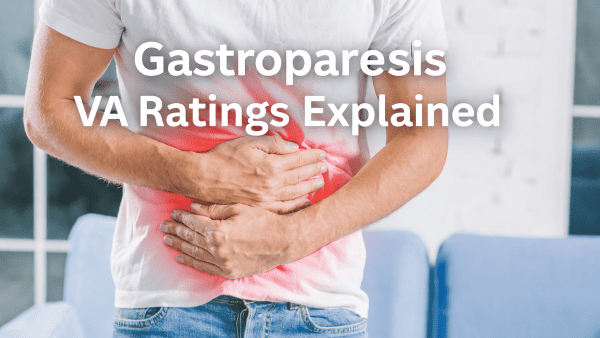
Ulcerative Colitis VA Rating: How the VA Rates It from 10% to 100%
Looking for Expert-Level VA Claim Answers?📱Call Us Now!
737-295-2226

Ulcerative Colitis VA Rating: How the VA Rates It from 10% to 100%

VA Appeal for Earlier Effective Date: How to Fix a Wrong VA Start Date & Get Back Pay

Pulmonary Embolism VA Rating: 0%–100% Explained

Pseudofolliculitis Barbae VA Rating Explained: How the VA Rates Razor Bumps

VA TDIU Income Limits 2026: Federal Poverty Level, Work Rules, and Eligibility Explained

Hemorrhoids VA Rating Explained (DC 7336): Eligibility, Ratings, and How to File

Varicocele VA Rating and How Veterans Qualify for Compensation

Proposed VA Rating Change for Painful Scars: Why “Objective Evidence” Could Matter for Veterans!

Plantar Fasciitis VA Rating Explained: 10%, 20%, 30%, and 40% Eligibility

VA Disability vs VA Pension: Can Veterans Receive Both Benefits?

VA Benefits for Veterans: Why 2026 is a Great Time to File!

Gastroparesis VA Rating: How Veterans Can Qualify for Up to 80% Disability
VA Claims Insider, LLC, and its affiliates ("we," "us", or "our") are not sponsored by, or affiliated with, the United States Department of Veterans Affairs, any state's Department of Veterans Affairs, or any other federally chartered veterans service organization. Other organizations, including, but not limited to, your state's Department of Veterans Affairs, your local county veterans service agency, and other federally chartered veterans service organizations, may be able to provide you with these services free of charge. Products or services offered by VA Claims Insider, LLC, and its affiliates are not necessarily endorsed by any of these organizations. You may qualify for other veterans' benefits beyond the services that VA Claims Insider, LLC and its affiliates offer.
None of our employees are accredited agents, VSOs, attorneys, or entities recognized by the United States Department of Veterans Affairs or any state's Department of Veterans Affairs, and none of our employees will assist you with the preparation, presentation, or prosecution of any claim for VA disability benefits. Before engaging with us, we strongly encourage you to discuss your disability claims matter with an accredited VSO, accredited attorney, or accredited claims agent, at www.va.gov/ogc/apps/accreditation/index.asp, all of whom are free to use. You are not required to use our website or services to submit a claim for VA disability benefits. You may receive a positive VA disability claim outcome without using our paid services. Furthermore, your use of our paid services does not and cannot affect the speed at which the VA processes your disability claims, as processing times are determined solely by the VA. VA CLAIMS INSIDER, LLC AND ITS AFFILIATES DO NOT GUARANTEE ANY SPECIFIC OUTCOMES OR RESULTS BY YOUR USE OF ITS WEBSITE OR SERVICES AND YOUR RESULTS MAY VARY FROM THE INFORMATION PROVIDED IN OUR ADVERTISEMENTS AND, ON THIS WEBSITE, INCLUDING BUT NOT LIMITED TO, SUCCESS PERCENTAGES, DISABILITY RATING INCREASES, AND PROCESSING TIMELINES ARE HISTORICAL AVERAGES ONLY, ARE NOT GUARANTEES OF FUTURE RESULTS, AND ARE NOT SPECIFIC TO ANY ONE CLAIM. SUCH INFORMATION VARIES OVER TIME, AND WE MAKE NO OBLIGATION TO KEEP SUCH INFORMATION CURRENT. The VA Claims Insider® name and logo are registered trademarks of VA Claims Insider, LLC.